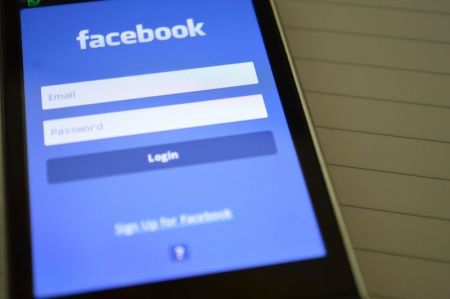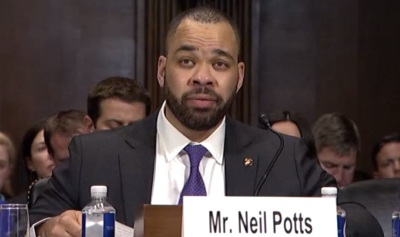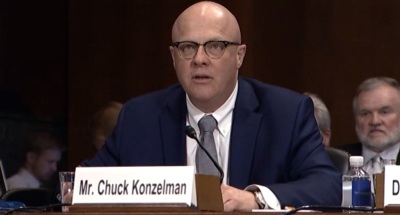Facebook rep says ‘unconscious bias’ against conservatives may exist, denies intentional bias

A representative of the Facebook company told members of Congress at a Senate hearing that there is very likely an “unconscious bias” against conservatives at the popular social media company, but denied the existence of a purposeful political slant.
The Senate Judiciary Committee’s Subcommittee on the Constitution held a hearing on Wednesday with two panels titled “Stifling Free Speech: Technology Censorship and the Public Discourse.” At issue was a series of incidents in which social media outlets like Twitter and Facebook had allegedly engaged in suppressing the voices of conservative commentators and filmmakers.
While some have argued that these are examples of ideologically-driven censorship, social media sites have responded that these were largely unintentional and were quickly corrected.
Neil Potts, public policy director at Facebook who was on the first panel, was asked by Senator Mike Lee of Utah about the “corporate culture” of Facebook in regards to political leanings.

Potts responded, as he had earlier in the hearing, that he did not believe there was a “political bias” at Facebook, but he was open to the idea of an unofficial slant.
“There is the room for unconscious bias that we do not recognize,” said Potts, adding that this contributed to their decision last year to approve the creation of an external investigation to determine if liberal bias existed.
Potts said that Facebook is “a platform for a diversity of viewpoints” and that they have done “some research” and are “trying to do more research” regarding allegations of mistreatment of conservatives.
“You need to hear those anecdotes to collect the information, the data to actually see, to find which policies may be right for review,” explained Potts. “You can’t really review the policy without hearing where you think it’s being misapplied.”
“Is it the case that we over-enforce on pro-choice content? Or is it the case that we over-enforce on pro-life content?”
Regarding corporate culture, Potts acknowledged that at the Bay Area headquarters of Facebook “we would probably have more liberals or people who identify as Democrats than we do as Republicans.” Yet he also stressed that Facebook is “a global company.”
“We have a large presence in Texas, we have a large presence here in D.C. as well as New York. We have a large presence in Dublin. We have a large presence in Singapore,” continued Potts.
“I am not the correct person to ask what everyone’s political ideology is because we don’t do a survey on that.”
In recent years, major social media outlets like Twitter and Facebook have been accused of censoring conservatives, especially pro-life groups.

Chuck Konzelman, writer and director of the pro-life movie “Unplanned” who was part of the second panel for the hearing, outlined ways in which his film had experienced issues with social media.
“Google Ads, formerly known as Google AdWords, blocked the entirety of the ‘Unplanned’ prerelease banner ads,” explained Konzelman. “After the film’s release, Google came up with yet another restriction concerning event ticket sales.”
“In short, we firmly believe that they were sharpshooting us, hiding behind highly selective and even discriminatory enforcement of their own guidelines.”
Regarding Twitter, Konzelman discussed how the film’s official Twitter account was suspended mere hours after the movie was released to theaters.
“The reason for that suspension has not, to the best of my knowledge, been made clear beyond being accidental or a mistake,” continued Konzelman.
“When such accidents occur within 12 hours of the film’s theatrical debut and after what I understand was nine months of ownership during which time there was zero suspensions, the glitch becomes suspect.”
Other members of the second panel included Marilyn Musgrave, vice president of the Susan B. Anthony List; Robbie Parker, who had a daughter murdered in the Sandy Hook mass shooting and has been the victim of social media-driven conspiracy theories; Eugene Kontorovich, a professor at the Antonin Scalia Law School at George Mason University; and Francesca Tripodi, assistant professor of Sociology at James Madison University.
Carlos Monje, director of public policy at Twitter and the other member of the first panel, denied that there was an anti-conservative bias, arguing that liberals and Democrats experienced similar issues with their content and accounts.
“We recently changed our impersonation policy,” explained Monje, “and we had two current sitting U.S. Senators, a sitting governor, and a sitting state attorney general, all Democrats, who were impacted by that.”
“We honored the ideas that were part of the Honest Ads Act and agree with the idea that political advertising should be more transparent. In the process of setting that up, a number of accounts got caught up in that. It included three current Democratic candidates for president and a major national pro-choice group.”
Last August, a group of about 100 employees of Facebook who identified as conservative announced that they had formed an internal organization within the social media company to combat a liberal-leaning culture.
"We are a political monoculture that's intolerant of different views," posted Brian Amerige, a senior Facebook engineer, according to a New York Times article from last year.
"We claim to welcome all perspectives, but are quick to attack — often in mobs — anyone who presents a view that appears to be in opposition to left-leaning ideology."





















